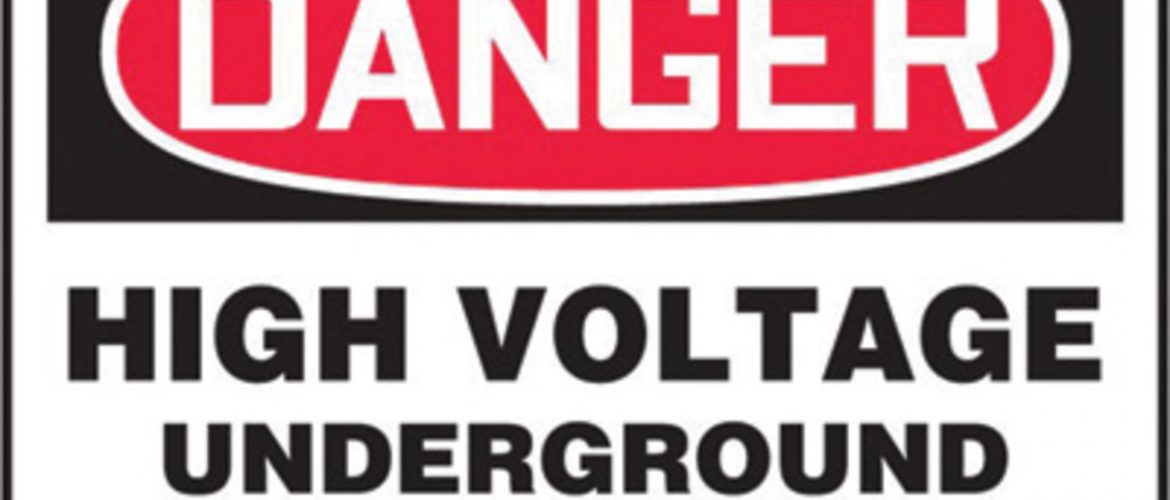Buried electrical wires create hazards for construction workers, electricians, utility company employees, farmers, landscapers, equipment operators, trenchers, excavators, and property owners.
On the morning of June 6, 2015 in Santa Maria, California, two local men were performing work on an underground water pump connected to a well. According to authorities, the workers’ equipment contacted a live electrical wire buried in the ground. One of the men was electrocuted and was pronounced dead at the scene. The other man suffered severe burns to his hands and feet, and was transported by ambulance to a local hospital.
This tragedy is typical of the injuries caused by contact with underground electrical wires. Many experts predict that such injuries will occur more frequently in the future, given the current trend favoring underground utility lines in modern residential housing developments.
Electrical Shock Injury Facts
According to the U.S. National Institute for Occupational Health and Safety (NIOSH):
– 3,378 American workers were killed on the job due to electrocution between 1992 and 2002, representing 4.7% of all occupational deaths.
– 1% of those fatalities were caused by contact with buried underground power lines
– In the same time period, 46,598 American workers suffered non-fatal electrical injuries.
– Electrocutions were the 4th leading cause of death among construction workers in the U.S.
– Electrical shocks as low as 5 volts can cause cardiac arrest.
Electrical Shock Injuries
Apart from electrocution (death by electrical contact), electrical shocks can also cause:
– Heart attacks
– Seizures
– Nerve damage
– Severe burns to skin, muscles and tissue
– Loss of limbs
– Memory loss
– Depression and anxiety
– Post-Traumatic Stress Disorder (PTSD)
– Fatigue
– Loss of balance
– Headaches
– Tinnitus (ringing in the ears)
– Cognitive problems – decreased attention, concentration
– Disfigurement
– Paralysis
Even if you are simply remodeling a patio or planting trees or shrubs, electrical cables can be severed when struck by a sharp object such as a shovel edge, jackhammer, or auger. If proper precautions are not taken, the results may be deadly. Before doing any digging or subsurface work, you must determine if any underground electrical wires are present.
Underground Electrical Wire Accidents
June 18, 2005 – A 42 year old subcontractor in Papillion, Nebraska was electrocuted while working on a drainage system after a co-worker struck a live wire with a shovel.
December 5, 2014 – Two construction workers in Orange County, California received severe electrical shocks and burns to their faces and hands when their jackhammers contacted an underground high-voltage line.
August 20, 2014 – A 38 year old laborer in Washington State was killed when his jackhammer struck an underground power line.
July 22, 2014 – A 35 year old man was hospitalized in critical condition after receiving a buried electrical wire shock near Saskatoon, Saskatchewan, Canada.
September 30, 2013 – In Huntington Beach, California, an electrical worker was shocked to death while performing his duties in an underground vault.
July 25, 2013 – A worker in Mountville Township, Ohio was electrocuted while working on a damaged irrigation pipe when he became entangled in underground wires.
August 6, 2012 – A man in West Jordan, Utah was temporarily paralyzed after the crowbar he was using to dig in his yard contacted an underground low-voltage line.
August 22, 2011 – An employee of a contractor was killed in Gainesville, Florida when the auger he was using to dig a hole struck an underground power line.
March 17, 2011 – A man in Des Plaines, Illinois suffered burns to his arm and face while loosening soil in the ground with an electric drill. The drill struck a live electrical cable buried nine inches below the surface.
